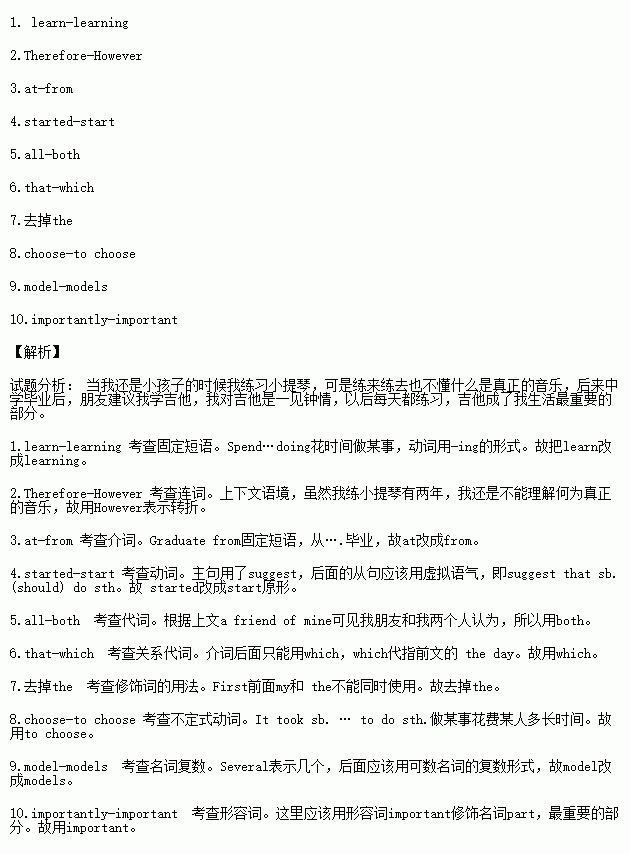ĖâÄŋÄÚČÝ
žŲķĻÓĒÓïŋÎÉÏĀÏĘĶŌŠĮóÍŽŨĀÖŪžä―ŧŧŧÐÞļÄŨũÎÄĢŽĮëÄãÐÞļÄÄãÍŽŨĀÐīĩÄŌÔÏÂŨũÎÄĄĢÎÄÖÐđēÓÐ10īĶÓïŅÔīíÎóĢŽÃŋūäÖÐŨîķāÓÐÁ―ļ°ĢŽÃŋīĶīíÎó―öÉæž°ŌŧļöĩĨīĘĩÄÔöžÓĄĒÉūģýŧōÐÞļÄĄĢ
ÔöžÓĢšÔÚČąīĘīĶžÓŌŧļöÂĐŨÖ·ûšÅĢĻ°ËĢĐĢŽēĒÔÚÆäÏÂÃæÐīģöļÞÓĩÄīĘĄĢ
ÉūģýĢš°ŅķāÓāĩÄīĘÓÃÐąÏßĢĻĢÜĢĐŧŪĩôĄĢ
ÐÞļÄĢšÔÚīíĩÄīĘÏÂŧŪŌŧšáÏßĢŽēĒÔÚļÃīĘÏÂÃæÐīģöÐÞļÄšóĩÄīĘĄĢ
ŨĒŌâĢš1ĢŪÃŋīĶīíÎóž°ÆäÐÞļÄūųÏÞŌŧīĘĄĢ
2ĢŪÖŧÔĘÐíÐÞļÄ10īĶĢŽķāÕßĢĻīÓĩÚ11īĶÆðĢĐēŧžÆ·ÖĄĢ
When I was a child, I spent more than ten years learn the violinĢŪTherefore, I couldn't understand "real music"ĢŪAfter I graduated at high school, a friend of mine suggested that we started to learn the guitar because we all thought it was coolĢŪl will never forget the day on that we went to buy guitars in the guitar storeĢŪ There I saw a guitar player playing the guitar, which I really enjoyedĢŪHe became my the first guitar teacherĢŪIt took me such a long time choose a guitar among several wonderful modelĢŪNow the guitar is the most importantly part of my life and I practice it every day.

